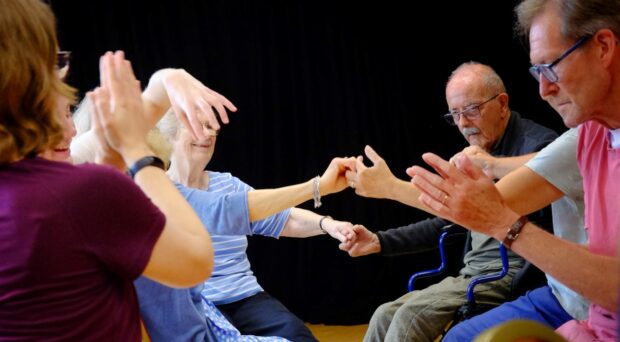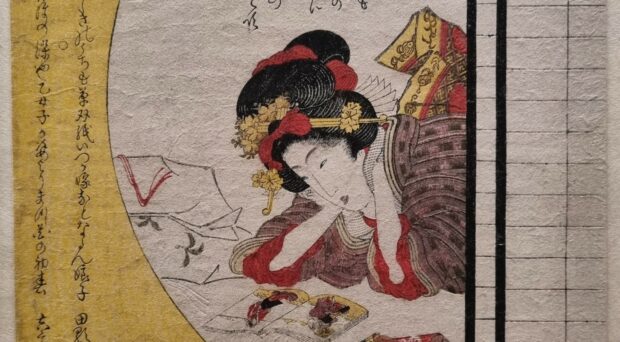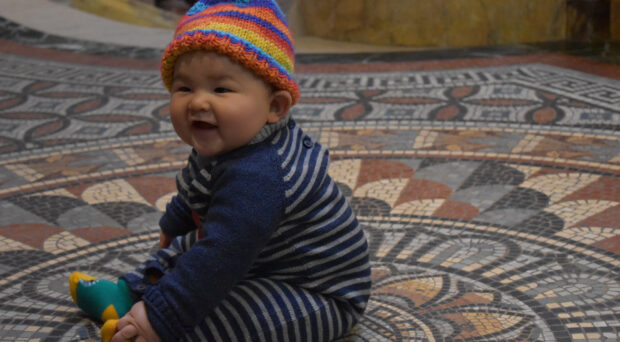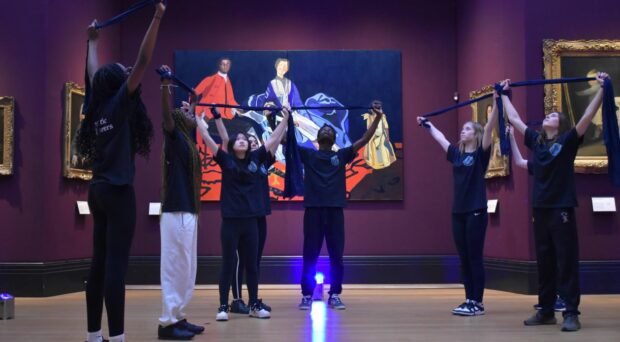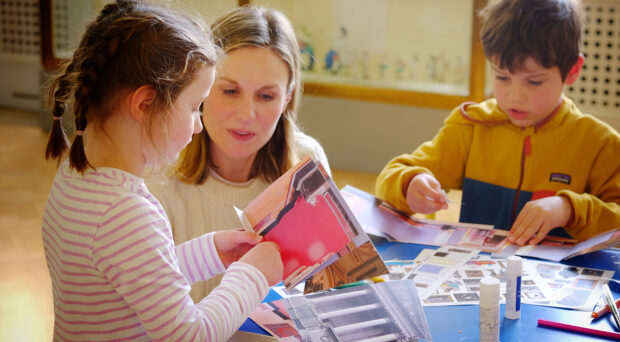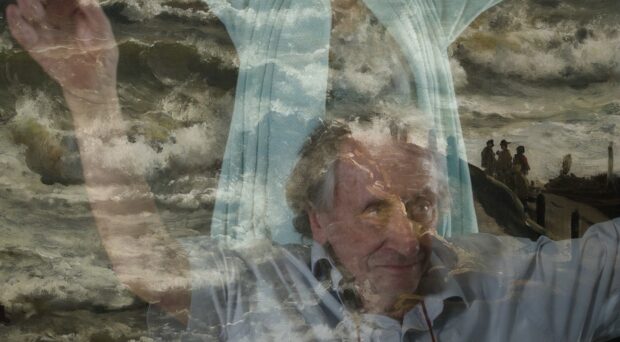The University of Cambridge’s historic collections reveal centuries of scholarship and discovery; artistic and technological excellence. They also evidence darker, far more challenging histories: histories of exploitation, colonialism and systematic power imbalances.
Museums are not neutral. Historically, and in the present day, who makes decisions impacts upon which narratives are privileged in our spaces and which are silenced; who is represented and who not; who visits and has access to our collections, and who does not.
Museums are also not necessarily the best interpreters of our collections for all audiences. We need help from outside to spot the stories we don’t and push us to be better.
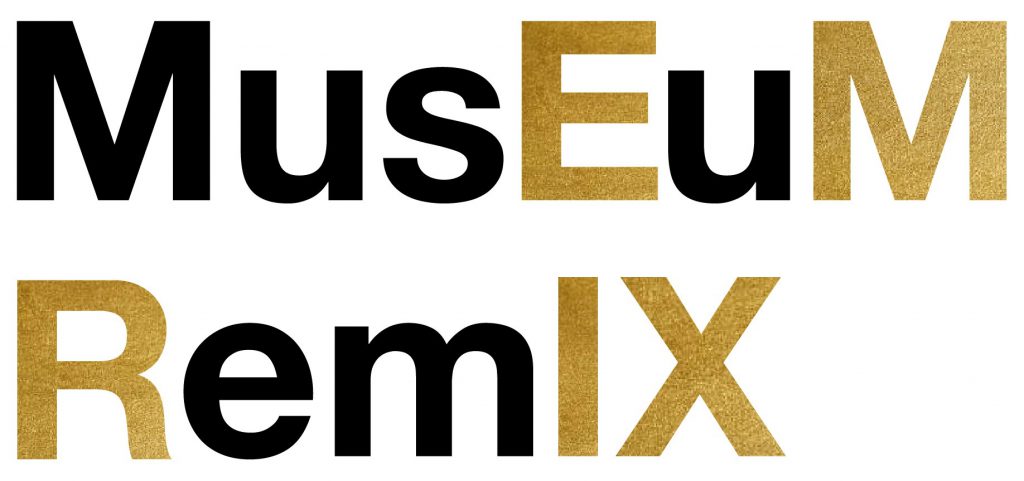
The Museum Remix
“Eye-opening, jaw-dropping new thinking experiences!” Museum Remix contributor
In June 2018, the University of Cambridge Museums (UCM) piloted a new kind of event: the Museum Remix. Part-workshop, part-provocation, part-mystery shop, the Remix challenged 20 contributors from across the museum sector, divided into three teams, to “remix” three historic collections.
No easy feat. Each museum presented its own challenges of scale, budget and subject matter.
The Sedgwick Museum of Earth Sciences
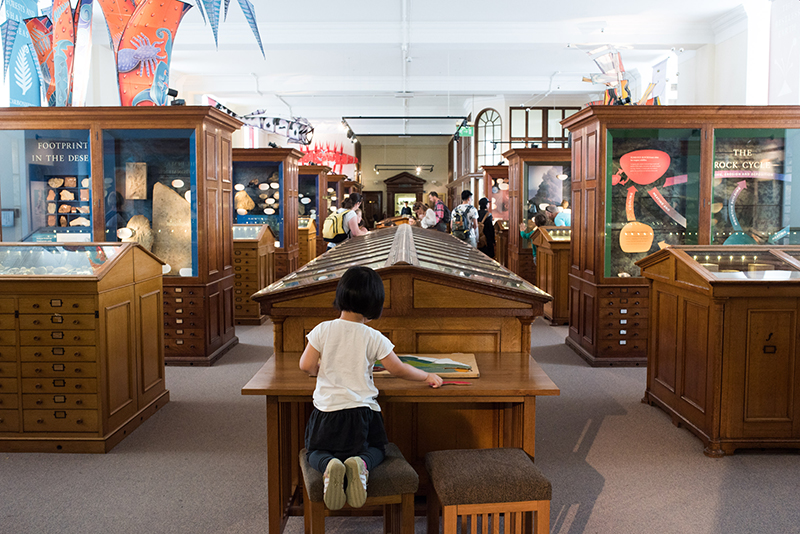
The Sedgwick Museum is not just about dinosaurs, although Iggy the Iguanodon is a firm visitor favourite. With a collection that spans 4.5 billion years of geology – and Victorian icons from Charles Darwin to its namesake Adam Sedgwick – it’s the oldest of the University of Cambridge Museums.
How could the museum show the human stories behind the rocks and minerals?
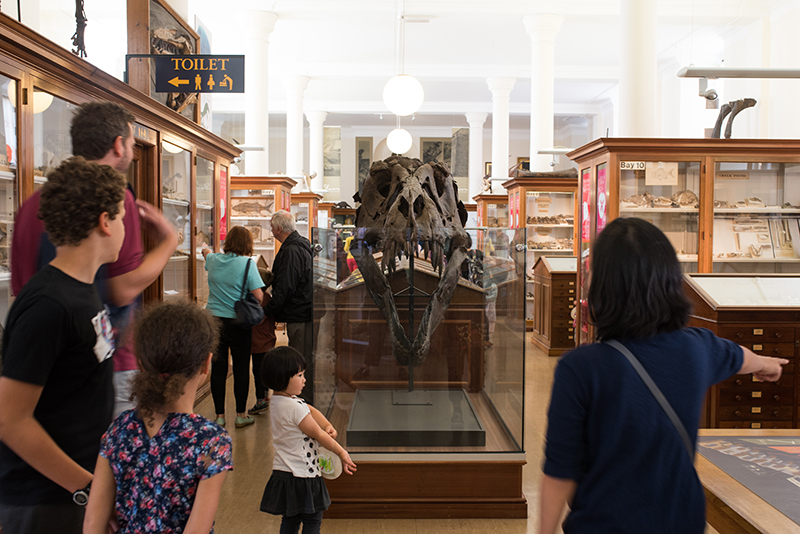
The Fitzwilliam Museum
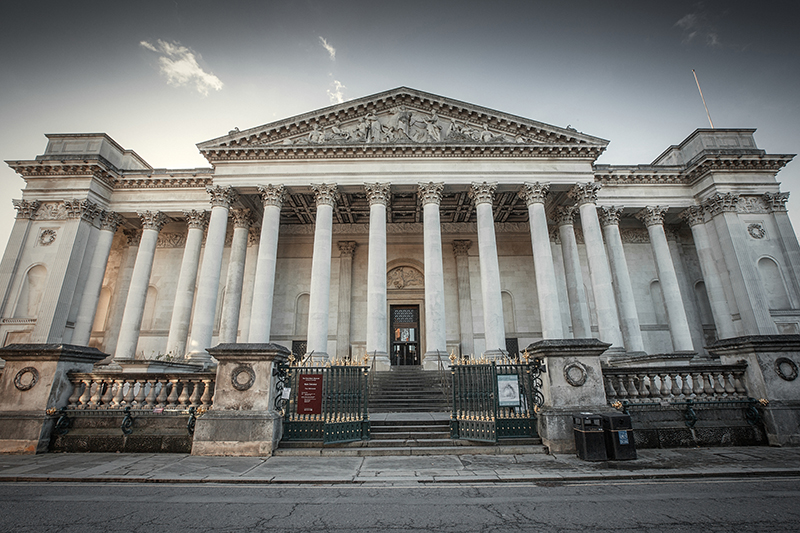
The “Fitz” is the University’s largest museum, with a major collection of art, antiquities and manuscripts. The Remix team focused on the Museum’s porcelain collection.
Let’s face it, few would describe ceramic figurines as their highlight. Visitors often walk straight past on their way to the more charismatic Ancient Egyptians.
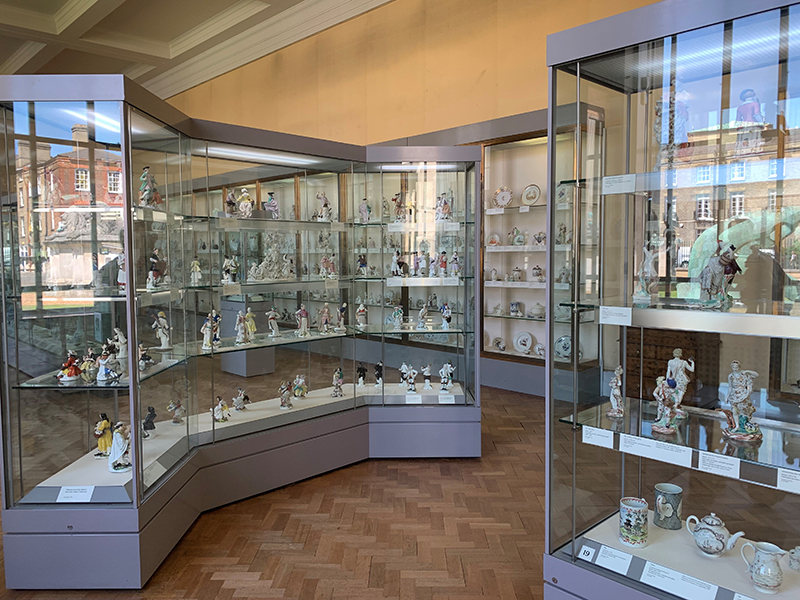
What might the team find on taking a closer look?
The Museum of Classical Archaeology
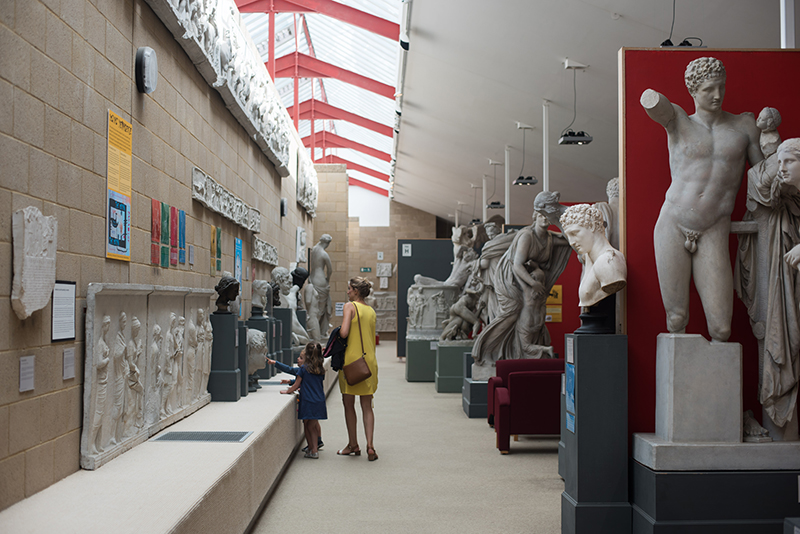
The Museum of Classical Archaeology holds one of the most important surviving collections of plaster casts of Greek and Roman sculptures in the world. It’s also the smallest of the University Museums, operating on a modest budget, and embedded in a larger building housing an academic Faculty.
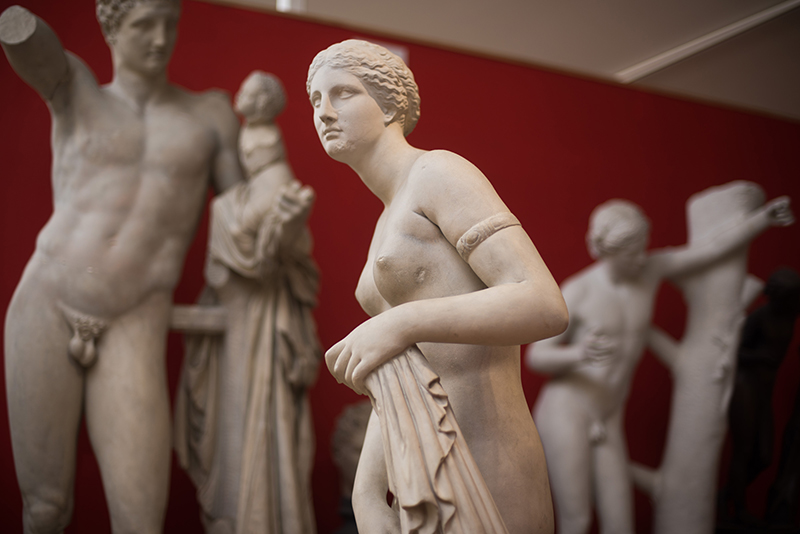
What are the implications for our understanding of antiquity when all of the sculptures are idealised and glowing white?
Remixing
Over the course of two days, each team of contributors spent time in one of the museums. They explored the galleries, discussed the collections with museum staff, and came together to reflect on their findings. After some thought-provoking discussions as a group, they presented their findings to a gathering of UCM staff at the Museum of Classical Archaeology.
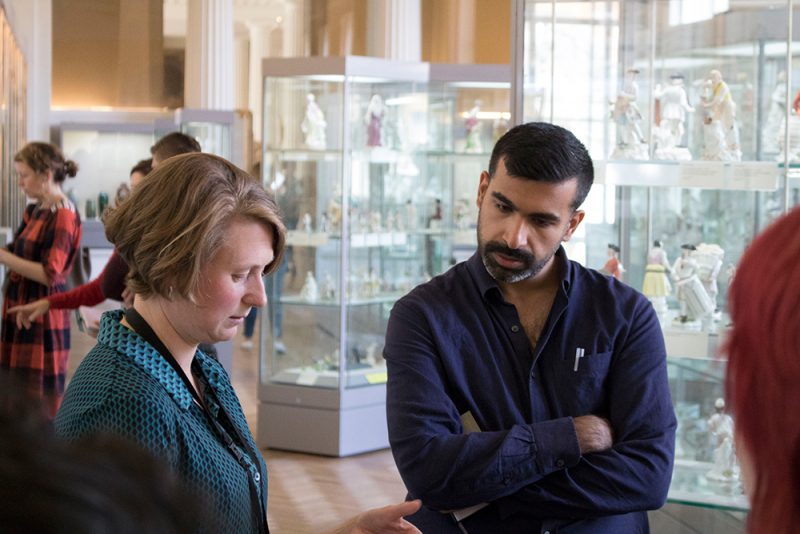
There was only one rule: that the teams should be as creative, as provocative, and as challenging as they wished to be.
“It was a really great opportunity to think. I don’t think we get time to think – we’re all so bloody busy.” Museum Remix contributor.
Some might have found it daunting…
…standing in front of an audience of museum professionals, telling them – respectfully, but frankly – how to make their beloved museums better. The Remixers, however, were more than up for the task. A mix of volunteers, students and museum professionals, from a variety of roles and backgrounds, they came to Cambridge from as far afield as Edinburgh and Manchester. Many had been thinking about questions of diversity and representation in their own organisations. Some wished to learn more, and welcomed the opportunity to dig into an unfamiliar collection.
“It can be demoralising working in a vacuum or feeling you are alone in trying to tackle difficult issues! This gave me the support to keep going.” Museum Remix contributor
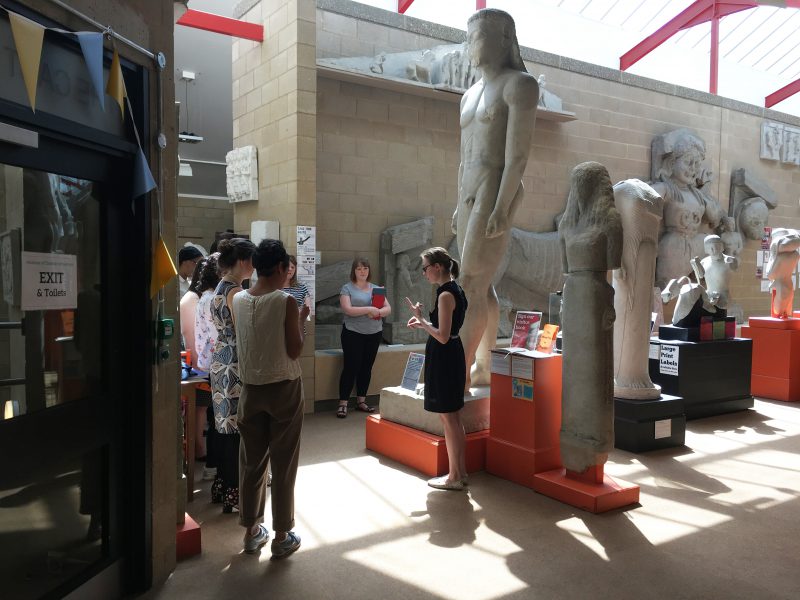
Museum Detox
Crucially, they had expert guidance in the form of Sonya Dyer, Cheryl Bowen and Thanh Sinden as facilitators. Sonya, Cheryl and Thanh are all members of Museum Detox, the network for BAME museums and heritage professionals, and between them have many years’ experience in the sector. Their guidance and support was crucial both for the UCM staff organising the event and the Remixers, with whom they worked closely.
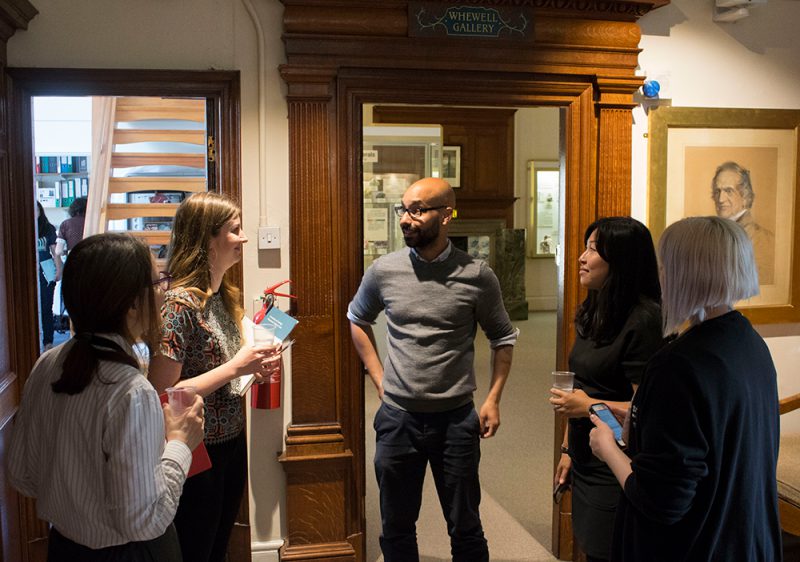
“Reflections on day one #MuseumRemix @camunivmuseums: hold onto that uncomfortable feeling of things unravelling & boundaries pushed. When something excites and feels radical question is it really, or is it radically comfortable?” Tweet from Thanh Sinden, via the Museum Detox Twitter account
One of the best things about [working with Museum Detox] was being pressed to confront uncomfortable realities head on. I really value that our facilitator didn’t back away from making me feel the discomfort, even if it wasn’t pleasant. Museum staff member
So, what uncomfortable realities did the teams find?
“This is not your grandmother’s porcelain. It’s racism on your mantelpiece.”
The Fitzwilliam team discovered a porcelain collection that was far from the chintzy ornaments beloved by nans. Or rather – the figurines were chintzy, which made their lack of contextualisation more challenging. The gallery’s narrative at present is focused on Europe rather than the complex journey that saw porcelain spread westwards after its development in China over a thousand years ago.
They presented a two-year plan for the gallery, to de-centre Europe and let porcelain’s story begin with China. The plan included co-curation with local communities, allowing them to engage directly with the presentation of the objects – as they put it, “not just opening doors, opening cabinet doors”.
The presentation of a plan – although tongue-in-cheek – challenged museum staff to consider what they could achieve if this kind of work was made high priority.
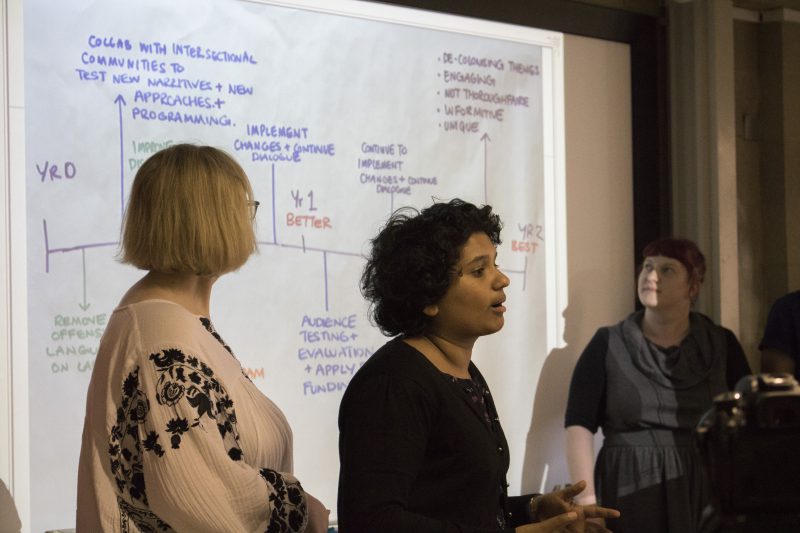
“There were mainly men I saw there. I felt it was very masculine and there was a certain class and exclusivity.”
Team Sedgwick gave themselves a wide-ranging remit, noting the access challenges posted by the Victorian building’s beautiful but steep entrance staircase and the potentially exclusive nature of some of the more traditional geological displays in the museum.
They also dug into the back story of the museum’s founder Adam Sedgwick (1785-1873), uncovering his links to the Atlantic slave trade. Adam Sedgwick and Charles Darwin, as great historical scientists, book-end one of the main galleries: but there’s also an opportunity to build on the stories of women geologists, including Mary Anning, who collected many fossil specimens in the collection.
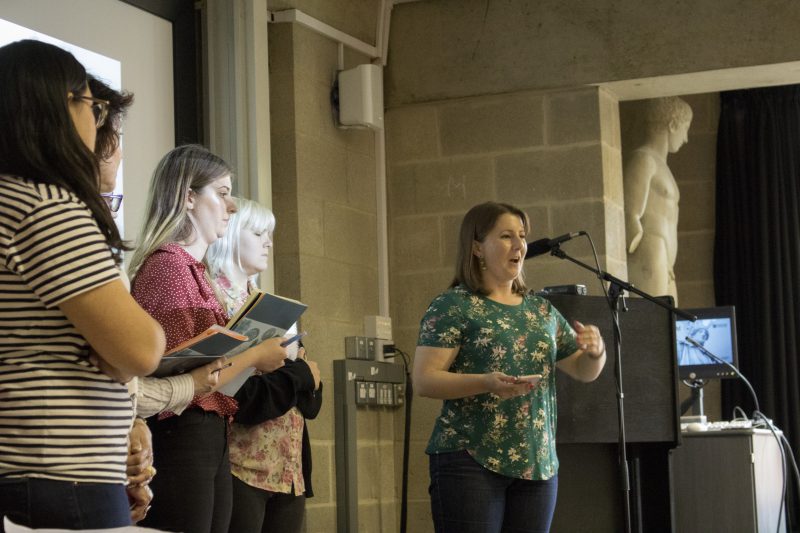
“The Museum was for people, I felt, who already had a substantial knowledge of the field, and that worried me.”
The Museum of Classical Archaeology team began their work outside the building. The Museum is situated on one of the University’s academic campuses, without a main entrance on the road. How might visitors feel better supported to cross that threshold onto University territory? And then, once inside, to enjoy and understand the collection?
See above for a walk-through video prepared for the presentation. They felt some of the museum’s interpretation, which had mainly been designed for Classics students, could be made more intellectually accessible. Extra support for the museum’s staff would be crucial, and building partnerships would help with capacity.
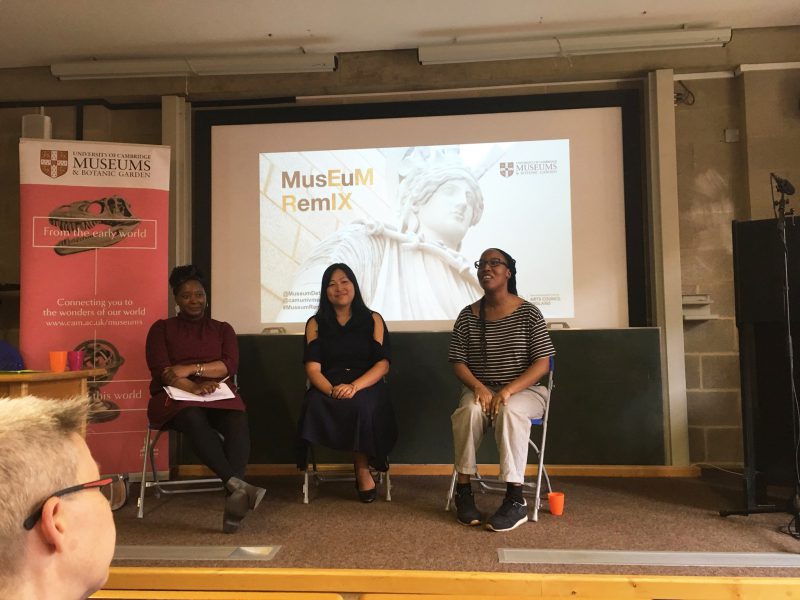
At the end of the presentations, Sonya, Cheryl and Thanh reflected on relevance. Who are museums for, anyway? It is only by collaborating and conversing with as wide a range of communities as possible that museums will remain relevant. Change is uncomfortable, and difficult, and urgent.
“It was great to be given so much freedom and support to be honest and even provocative – usually it’s difficult to say critical things and I worry about the personal and professional consequences. This felt very freeing.” Museum Remix contributor
“It was incredibly useful to be jolted out of complacency.” Museum staff member
If one theme emerged from the Remix, it was perhaps that…
Knowledge is power
That’s the inheritance of our museums. The collections came into the possession of the University as teaching tools for the transmission of knowledge from one generation of elites to the next. They grew behind closed doors, for the benefit of a small scholarly community.
Now, the museums are in a moment of transition. They reach a far greater, and more diverse, audience than they were ever intended to, while still being very much embedded within the University of Cambridge. The Museum Remix teams presented UCM staff with ways of thinking about how we can throw our doors as wide open as possible.
“It is vital, as we move forward, that we listen to and invite external voices. We cannot do everything ourselves.” Museum staff member
We are hugely grateful to all who took part for their time, energy, and courage in helping us along.
What next?
In the year since the Museum Remix, its principles of openness, frankness and dialogue have been reflected in a number of new projects.
Beyond the label: new museum tours
Two series of museum tours have opened up histories that have traditionally remained hidden to the UCM’s audiences.
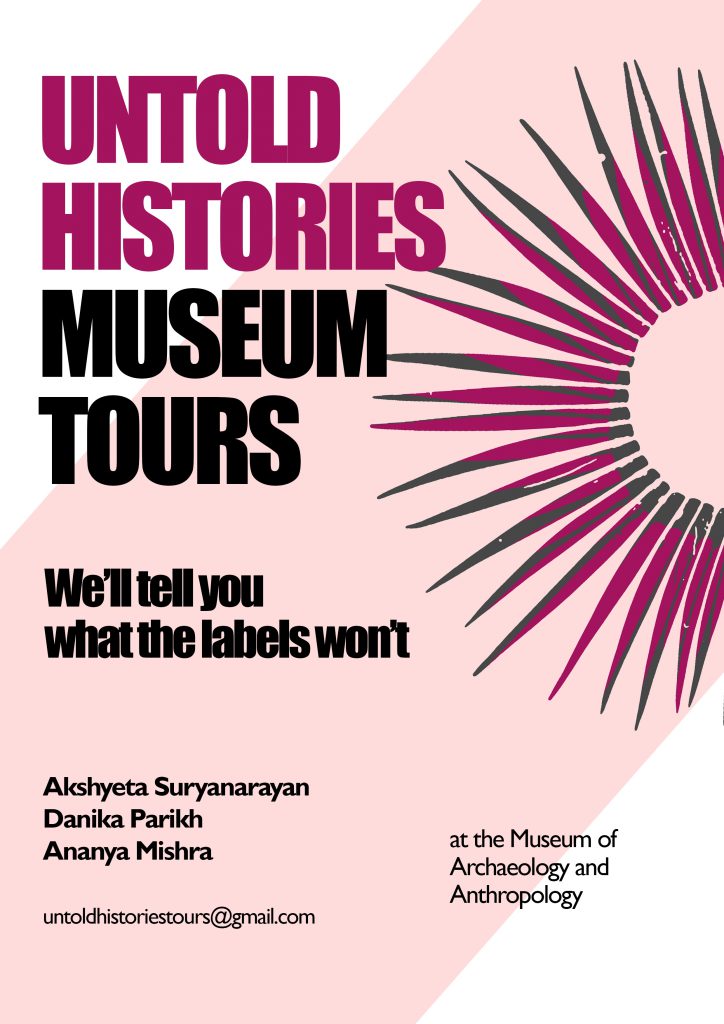
October 2018 saw the launch of Untold Histories Museum Tours at the Museum of Archaeology and Anthropology, developed and delivered by a team of graduate researchers, Akshyeta Suryanarayan, Ananya Mishra and Remixer Danika Parikh. The tours explore the colonialism and conflict behind MAA’s anthropological collections.
“We want people to know how objects in MAA came to be there, which involves recognising the colonial legacy of Cambridge and its institutions, and confronting the problematic pasts of anthropologists and ethnographers who defined these fields and are celebrated today.” Untold Histories team
After an initial sell-out run during the Cambridge Festival of Ideas, the team has developed the project into a longer-term series, with tickets available now. Find out more about the project on the UCM Blog.
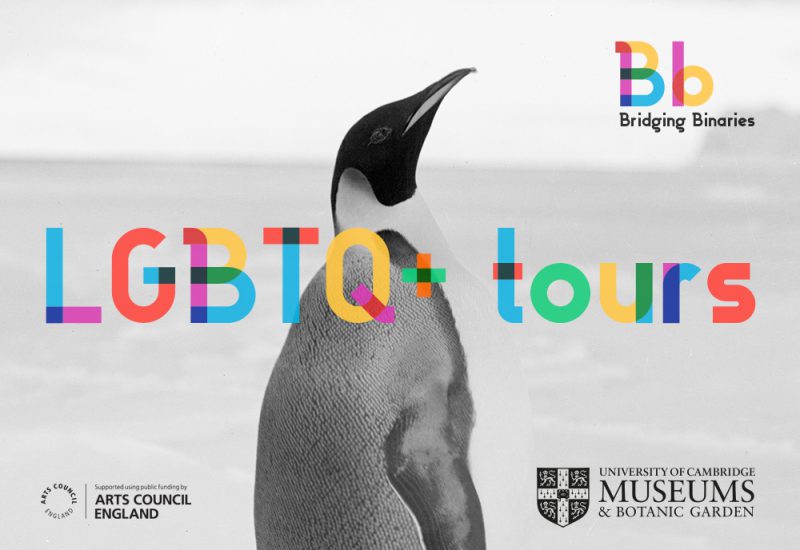
Meanwhile, in December, a pilot series of Bridging Binaries tours was launched at the Fitzwilliam, Museum of Classical Archaeology, Museum of Zoology and Polar Museum. Designed and led by a dedicated team of volunteers, the tours explore non-normative gender and sexual identities through a range of lesbian, gay, bisexual, transgender and queer-related objects. Dan Vo, freelance consultant and volunteer tour coordinator at the V&A, worked with UCM curators to research a body of LGBTQ+ content for the tour guides, allowing each to build their own personal tour.
“[The tour] brought out the humanity associated with the objects and the way that even an object like an egg can reflect the opinions and prejudices of its collector.” Bridging Binaries tour attendee
More UCM museums will be joining the Bridging Binaries series this autumn. Both tour projects have received international recognition, including in the New York Times.
A pocket Remix
The UCM Change Makers Action Group has also developed a portable Museum Remix activity to help share the approach and get museum and heritage colleagues thinking about how they might Remix their own collections.
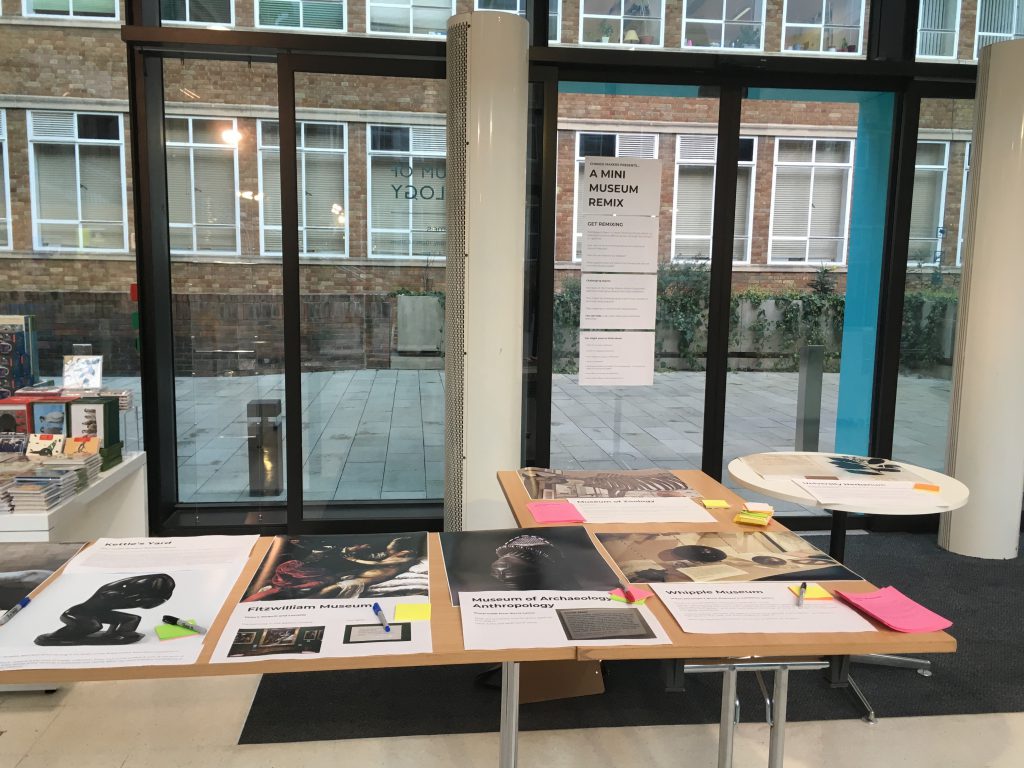
Participants are asked to critique and respond to a selection of challenging objects – challenging because of their subject matter, provenance, current display, or a whole combination. The activity works as a table-top exercise or in discussion groups. The use of specific objects as “test cases” allows participants to think about different practical ways change can be made, helping them to develop a way of thinking that they can apply in their own collections.
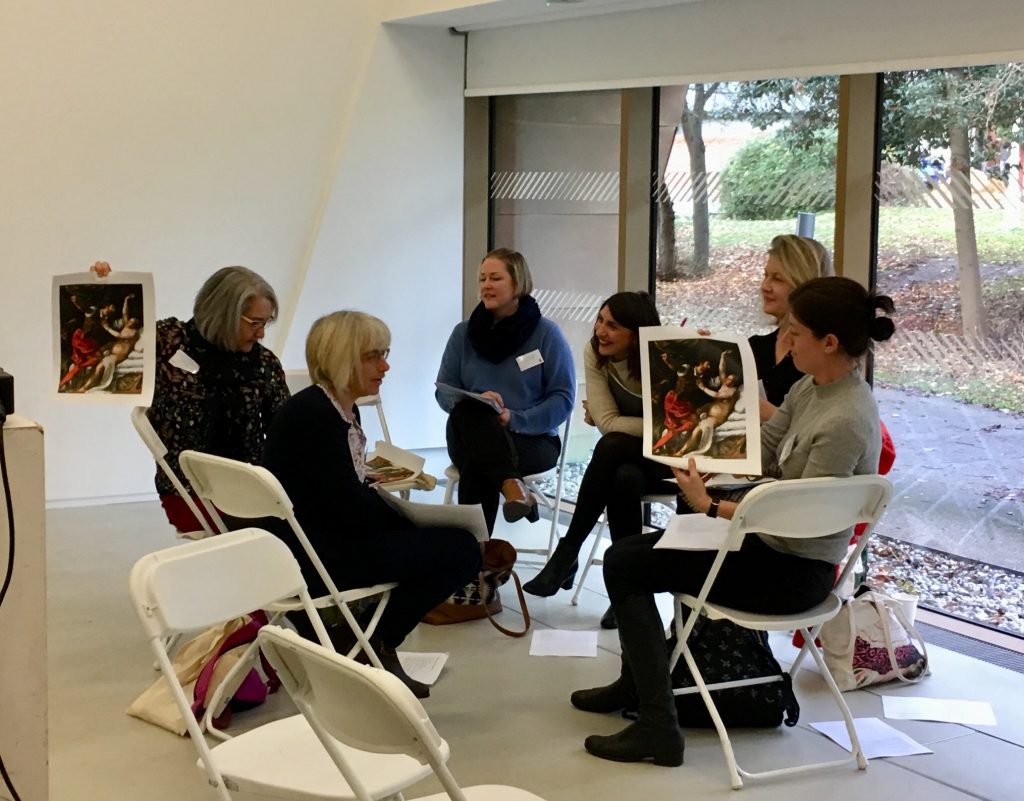
Mini Remix activity at the SHARE Museums East annual conference, November 2018
The UCM is also planning a second Museum Remix event in September 2019, building on the Bridging Binaries project. Watch this space!
The Museum Remix was hosted by the Change Makers Action Group and funded by Arts Council England’s Change Makers initiative.



